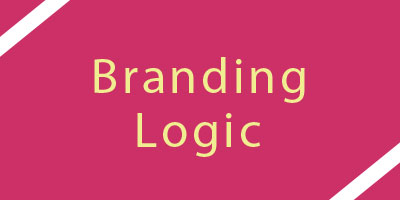Mating Kingfisher
.... Branding, misconceptions apart, is widely known to help long-term sales and profitability. But it is not as well known that inept branding decisions can misguide strategies and operations with long-term negative impact..........................................
An uncle, a lifer at a pharma MNC had gained good clout with doctors in the Mangalore region having worked mostly there. When he was closer to retirement, a known and knowledgeable entrepreneur wanting to make and sell a line of drugs approached him with an offer that probably belittled his remaining years at the MNC. Both believed in astrology and decided to de-risk by talking to an astrologer. They met the one proven and highly reputed. The entrepreneur asked; will the project succeed? Is the partnership helpful? The astrologer said, yes and it can flourish with this partner. Happy and decided, my uncle asked the astrologer indicatively through the body language; it has to be good for me too? To his surprise and the dismay of the entrepreneur the astrologer said; not necessarily, this partnership will not be good for you. That put an end to the talks and my uncle retired a happy man 4 years later.
The story, I believe can reinforce a logic about brand extension - - particularly the kind of current effort at UB group in cloning a Kingfisher out of an Air Deccan. Air Deccan is now just Deccan , red and flaunts Kingfisher as its mark. That's brand extension sans the name. I see in it a wholesome practical case that can make a 100 marks question paper on 'Brand Management' - - with just one misleading question. What and how do the brands gain?
Branding, misconceptions apart, is widely known to help long-term sales and profitability. But it is not as well known that inept branding decisions can misguide strategies and operations with long-term negative impact. At the UB group, mating Kingfisher and Air Deccan is a twin brand task. For Air Deccan it is about change in identity. And, for Kingfisher it is an extension.
The 100 marks question isn't simple. It has a good set within. In buying Air Deccan, what did the UB group buy - - a business or a brand? Was the old name a drag? Is the new one a drive? What value attributes of kingfisher can charge-up Deccan ? Wouldn't the kingfisher logo raise the expectations of the Air Deccan clientele beyond the feasibility of the business model? (The bird is overwhelming already - - Deccan is now a 'Premium low-cost' airline). Isn't the price gap too thin to price in between and position the airline on that? Premium low cost – does it not defy positioning principle? Can Deccan contribute reverse value in enhancing the brand equity of kingfisher? Can it at least sustain its values? By stretching Kingfisher on to Deccan wouldn't the brand lose its potential in being able to make good with most appropriate extension opportunities? I would say the burning is all fine if only the answers to all the above questions can be positive. They are not - none really.
It is fairly easy to answer branding questions. It is hard to make them, make the right ones and most importantly in the right order. Most branding mistakes happen due to missing questions, ignoring them - often very simpler ones or jumping steps altogether. If the primary question; 'do we change the brand name?' which would get a substantiated 'NO' as answer, is bypassed - to think out a new name, even the best of the new name would prove to be a mistake. That's what happened with Indian (I mean the airline). The PSU jumped questions and asked the advertising agencies for help to change its image with a new name. Advertising agencies in India haven't really matured enough to address such invites with a one-word advice 'Don't' - - and ask to be paid for it. Helplessness in trying on a non-work invariably shows-up in the suggestions that emerge. Clipping a word off from Indian Airlines and Air Deccan has rendered them rather awkward. Similarly, 'Simplifly' the one-word unbeatable slogan that says everything the new four word slogan says and more could not be discarded. But, I wonder, why another slogan?
UB group apparently has bypassed quite a few primary questions. I guess, the de-branding is the result of near-focus contemplations on certain business issues such as; permit to fly kingfisher abroad, quick take competition strategies and about scaling-up. Solutions to business problems can surely come from hearing out the brand commands but seeking it by changing the fundamentals of the brand beyond its intrinsic scope can only render the business without the prime source of long-term direction thereby cutting its chances in the market rather drastically. Both the brands were dominant and were poised to enjoy absolute leadership in their respective segments. Air Deccan had become a brand of definite potential moving-in first and scaling-up fast which I believe belittles its large money drain. And, as a practicing brander, I believe Kingfisher, despite the branding mistakes, remains even today immensely potential, many times more than the Jet to lead in the full-service segment. Brands that attain certain stature happen to be resilient to be harmed by quite a bit of undoing.
But, that's past. And, even powerful brands can face the prospect of quick loss of equity if tried illogically. Today, both the brands have been made to bear each other's skin - - which can only limit their potential to yield. The mismatch would show-up in the decisions - on flying (together). 'Premium low-cost' the new hybrid position for Deccan explains it all. Both are airlines but as brands they vary widely on the terms on which they would yield. Air Deccan can (could have) become a big non-extendable brand on being successful in low-cost flying. Kingfisher as a brand can make quite a few carefully selected businesses that match its personality, style and stature - successful, including the full-service flying it is already into. Low-cost flying is about mass flying, more planes, more flights, more destinations, economy linked growth, gestation losses, lower margin, operational efficiency, multiple investors and essentially low-cost - - simpliflying. In stark contrast, Kingfisher is essentially pomp, pamper, fun and more (superior, upper class, expensive, high margins). Low cost will click but not for Kingfisher, not even indirectly and not without loss of equity. The loss, mostly in terms of opportunity cost, in the misplaced opportunity would be very small compared to the loss in its brand equity - in making good from opportunities that can possibly belong to it.
Kingfisher ventured-in with the low-cost intent, started off with just the kingfisher class, added first (class) and now flies a low-cost carrier too. The contradictions in the fundamentals have flowed down in the methods, strategies and even in the advertisements for Kingfisher Airlines - - that's on right now.
22 December 2007
Copyright: Adve Srinivasa Bhat, India.











